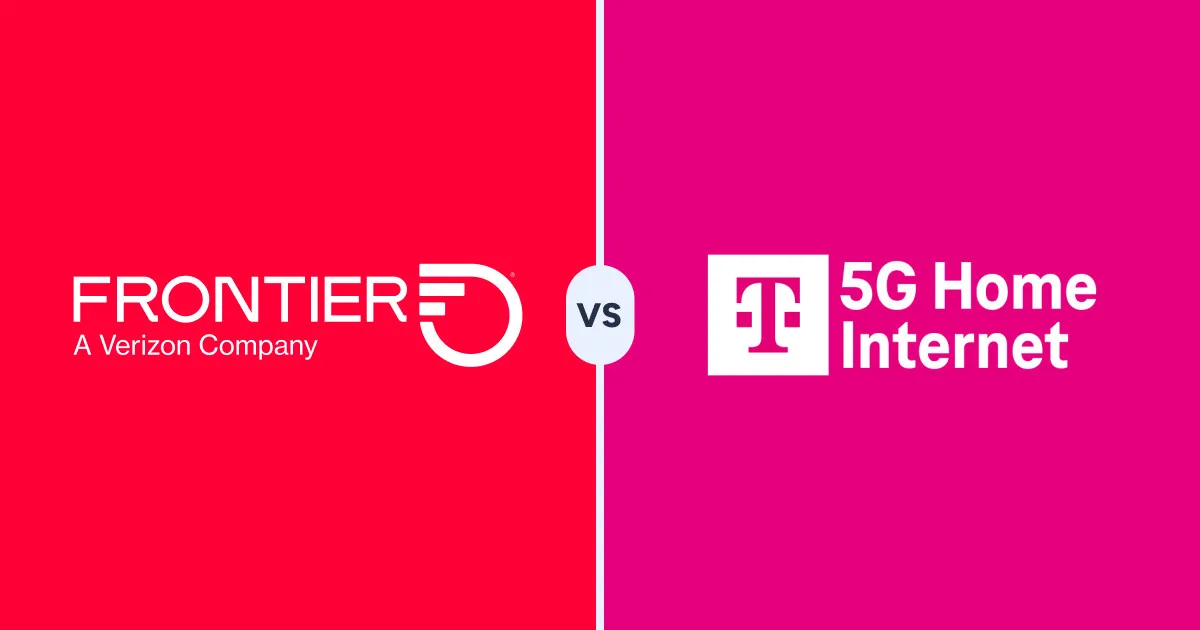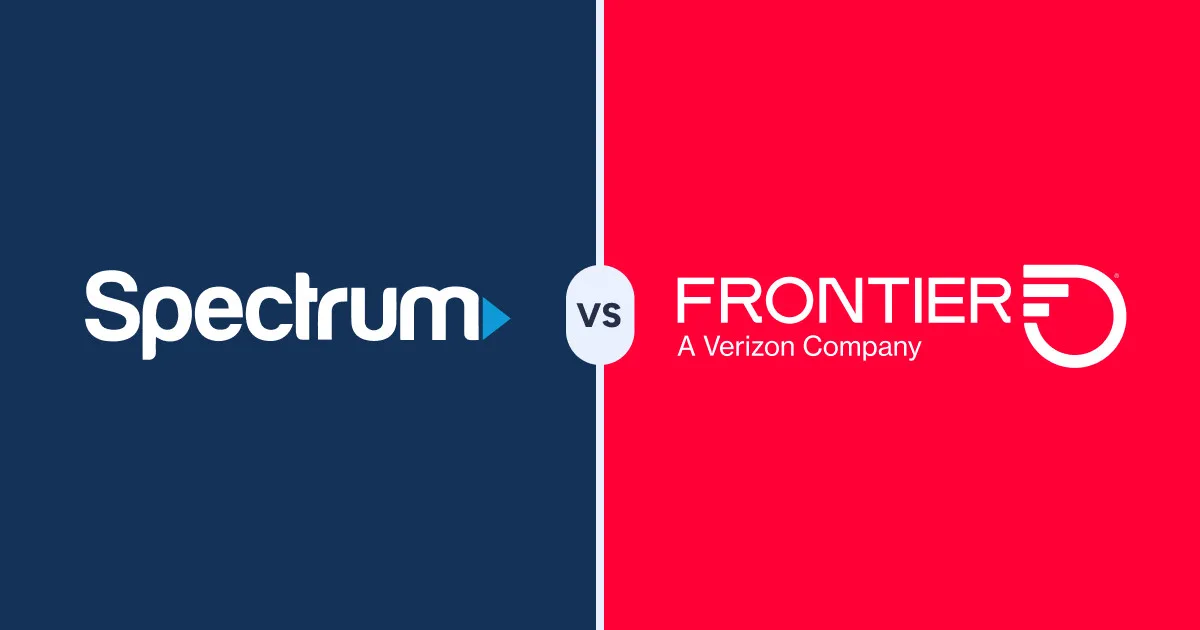Google Fiber vs. Xfinity: Which Internet Provider is Best For You?
Here’s how to choose between two of the fastest internet providers out there.
Nov 19, 2025 | Share
Provider Comparisons (Versus)
-
Best speeds
- Customer Rating: 4.3/5*
- Price: $70.00–$150.00/mo.†
- Speed: 1,000–8,000Mbps (1–8 Gbps)
- Internet type: Fiber
-
Most options
- Customer rating: 3.9/5*
- Price: $40–$100/mo.‡
for 12 mos. - Speed: 300–2,000Mbps
- Internet type: Cable, fiber
Data as of 11/19/2025. Offers and availability may vary by location and are subject to change.
*Based on our annual Customer Satisfaction Survey
†Terms and Conditions: Plus taxes and fees. Service not available in all areas. If you live in an apartment or condo, Google Fiber’s ability to construct and provide Fiber is subject to the continued agreement between Google Fiber and the property owner. Upload/download speed and device streaming claims are based on maximum wired speeds. Actual Internet speeds are not guaranteed and may vary based on factors such as hardware and software limitations, latency, packet loss, etc.
Available in select markets only. Plus taxes and fees. Upload/download speed and device streaming claims are based on maximum wired speeds. Actual Internet speeds are not guaranteed and may vary based on factors such as hardware and software limitations, latency, packet loss, etc.
‡ For 12 months, no term contract. Restrictions apply. Autopay w/ stored bank account and paperless billing req’d. Taxes and fees extra and subj. to change. Reduced speeds after 30 GB of usage/line. Data thresholds may vary.
Compare Google Fiber and Xfinity head to head
With its fast and reliable fiber-optic network, Google Fiber has pushed the limits of what customers expect from their internet service providers (ISP) since the first Google Fiber city was announced in 2011. But the catch is there’s a good chance it’s not available in your area. Xfinity’s sprawling cable network, on the other hand, makes it one of the largest and most available ISPs in the country. It’s also one of the fastest options in areas where fiber isn’t available, but its cable-based network is more prone to slowing during busy internet times than fiber is.
Pros and cons: Google Fiber vs. Xfinity
 Pros:
Pros:
- Gigabit and multigigabit speeds (1,000–8,000Mbps)
- No contracts
- No hidden fees
 Cons:
Cons:
- Limited availability
 Pros:
Pros:
- Wide availability
- Reliable connections
- No term contracts
- Robust customer service
 Cons:
Cons:
- Price hikes
Can you get Google Fiber or Xfinity?
Find out by entering your zip code below.
Plans and pricing: Google Fiber vs. Xfinity
Xfinity offers more plan variety, especially when it comes to mid-range and budget plans. If you’re looking for the fastest speeds, however, Google Fiber is the clear winner, with plans as fast as 8,000Mbps. Both of these providers offer good value plans, but Google Fiber offers more speed per dollar.
Google Fiber plans and pricing
| Package | Price | Speed |
|---|---|---|
| Core 1 Gig | $70.00/mo. | 1Gbps (1,000Mbps) |
| Home 3 Gig | $100.00/mo. | 3Gbps (3,000Mbps) |
| Edge 8 Gig | $150.00/mo. | 8Gbps (8,000Mbps) |
| 1 Gig | $70.00/mo.* | 1Gbps (1,000Mbps) |
| 2 Gig | $100.00/mo.* | 2Gbps (2,000Mbps) |
| 5 Gig | $125.00/mo.** | 5Gbps (5,000Mbps) |
| 8 Gig | $150.00/mo.** | 8Gbps (8,000Mbps) |
Data as of 01/22/2025. Offers and availability may vary by location and are subject to change.
*Plus taxes and fees. Service not available in all areas. If you live in an apartment or condo, Google Fiber’s ability to construct and provide Fiber is subject to the continued agreement between Google Fiber and the property owner. Upload/download speed and device streaming claims are based on maximum wired speeds. Actual Internet speeds are not guaranteed and may vary based on factors such as hardware and software limitations, latency, packet loss, etc
**Available in select markets only. Plus taxes and fees. Upload/download speed and device streaming claims are based on maximum wired speeds. Actual Internet speeds are not guaranteed and may vary based on factors such as hardware and software limitations, latency, packet loss, etc.
Google Fiber offers incredibly fast speeds for a very reasonable price. Despite its limited availability, Google Fiber has had a huge impact nationwide, popularizing fiber home internet and pushing other ISPs to improve their services to keep up.1 It has plans with straightforward pricing and great value. The multigig plans aren’t available in all Google Fiber locations, but like the 1Gbps plan, availability is slowly expanding.
Xfinity plans and pricing
| Package | Starting price | Speed |
|---|---|---|
| 300 Mbps | $40/mo.* for 12 mos. | 300Mbps |
| 500 Mbps | $55/mo.* for 12 mos. | 500Mbps |
| 1 Gig | $70/mo.* for 12 mos. | 1,000Mbps |
| 1.2 Gig | $100/mo.* for 12 mos. | 1,200Mbps |
| 2 Gig | $100/mo.* for 12 mos. | 2,000Mbps |
Data as of 09/22/2025. Offers and availability may vary by location and are subject to change.
*For 12 months, no term contract. Restrictions apply. Autopay w/ stored bank account and paperless billing req’d. Taxes and fees extra and subj. to change. Reduced speeds after 30 GB of usage/line. Data thresholds may vary.
Xfinity offers a wide variety of plans. Not every plan is available in every location, but most locations offer a range of plans from basic but affordable to fairly robust. While Xfinity’s plans do reach into the higher speeds, these tend to be more expensive than similar plans offered by Google Fiber.
Xfinity’s biggest advantage is its wide availability. Xfinity is one of the largest ISPs in the US, and because its entire network is based on cable connections, it can offer higher speeds and more reliable connections than ISPs that operate DSL networks.
In any case, Xfinity’s 6 Gbps fiber plan is also three times the price of Google Fiber’s 2 Gbps fiber plan, so even if you’re one of the few people who have access to Xfinity’s fiber network, we suggest going with a less expensive option.

Deals and promotions: Google Fiber vs. Xfinity
- Get gigabit speeds with no data caps and free installation from Google Fiber starting at $70 per month
- Enjoy a 5-year price guarantee on a 300Mbps internet plan for $40 per month, through Feb. 22
- Earn up to $500 per year by referring friends to Xfinity
- Get automatic enrollment in Xfinity Rewards for exclusive access to merch, free TV and movies, and rotating weekly offers
Extra fees: Google Fiber vs. Xfinity
| Equipment Fee | Installation Fee | Other Fees | |
|---|---|---|---|
| Google Fiber | None | None | None |
| Xfinity | None | Up to $100 (Free for self-installation with standard shipping) | $10 late payment fee |
Data as of 11/07/2025. Offers and availability may vary by location and are subject to change.
Google Fiber and Xfinity don’t have any fees beyond your normal monthly bill, including late fees. Both ISPs gives you a free router and free installation when you sign up. But if you do need a professional installation with Xfinity, it will usually cost $100.
With Google Fiber, if your outstanding balance is unpaid for more than 40 days, your account will be suspended.3 Fortunately, there are no additional fees to reinstate a suspended account, either. You just have to pay your remaining balance in full.
Customer ratings: Google Fiber vs. Xfinity
| Overall | Speed | Price | Reliability | Customer Service | |
|---|---|---|---|---|---|
| Google Fiber | 4.3 | 4.3 | 4.0 | 4.3 | 4.2 |
| Xfinity | 3.9 | 4.0 | 3.5 | 3.9 | 3.7 |
Based on our annual Customer Satisfaction Survey
Google Fiber blew larger nationwide internet providers out of the water in our annual customer satisfaction survey. Customers rated Google Fiber well above other providers in speed, price, and overall satisfaction, proving that Google Fiber still lives up to the hype.
Although Xfinity’s scores are a bit lower than those given to Google Fiber, Xfinity was still one of the top-performing providers on our survey when compared to other nationwide brands. Xfinity performed especially well in the categories of speed and reliability, coming in at the number one spot for speed among nationwide providers for the second year in a row.
Internet types: Google Fiber vs. Xfinity
| Internet type | Details | |
|---|---|---|
| Google Fiber | Fiber | View Plan |
| Xfinity | Cable, Fiber | View Plans |
Google Fiber operates an all-fiber network, so you’re always going to get the same high speeds and reliable connection, no matter where you are. Fiber internet has the advantage of symmetrical speeds, which means your upload speeds and just as fast as your download speeds. This is nice to have for video calls, streaming broadcasts, and uploading large files.
Xfinity’s network mostly delivers cable internet, which gives you good download speeds with slower upload speeds. Xfinity also offers fiber connections in a few areas, but the availability is extremely limited.
Data caps: Google Fiber vs. Xfinity
| Data cap | Details | |
|---|---|---|
| Google Fiber | None | View Plan |
| Xfinity | None | View Plans |
Google Fiber and Xfinity don’t have any data caps, which means you can use it as much as you need without worrying about throttled speeds or overage fees.
Contracts: Google Fiber vs. Xfinity
| Contract length | Details | |
|---|---|---|
| Google Fiber | No contract | View Plan |
| Xfinity | No contract | View Plans |
Google Fiber and Xfinity don’t require a contract, so you simply pay on a month-to-month basis.
Installation: Google Fiber vs. Xfinity
| Installation options | Details | |
|---|---|---|
| Google Fiber | Free professional installation | View Plan |
| Xfinity | $100 professional installation Free for self-installation with standard shipping | View Plans |
Google Fiber offers free professional installation to new customers, and its technicians do an amazing job, keeping all the cables neat and tidy.
Xfinity offers professional installation for $100. If you don’t want to pay even that much, Xfinity offers a free self-installation option as well, which it makes easy with an app that gives you step-by-step instructions.
Availability: Google Fiber vs. Xfinity
When it comes to availability, few ISPs can match Xfinity, which has a network that runs from coast to coast and covers over a third of the US population.4 Its reach doesn’t extend very far into rural areas, but if you live near a big city and have cable hookups at your house, there’s a good chance you have access to Xfinity internet.
Availability is the main weakness of Google Fiber. Its network is available in only a few Google Fiber cities, bringing access to less than 1% of the US population.4 Although its network is expanding, Google Fiber is still a relatively small ISP and faces an uphill battle when it comes to increasing its coverage.
Final call: Google Fiber vs. Xfinity
If you have access to both Google Fiber and Xfinity in your area, we recommend going with Google Fiber to get the most speed and reliability for the cost. Those with very basic internet needs might save some money by going with a cheaper Xfinity plan, but be aware of price hikes that will inevitably occur once the promo period ends.
Methodology
Our HighSpeedInternet.com editorial team bases our analyses on customer input from our annual customer satisfaction survey, results from our speed test tool, and proprietary internet provider data on speeds and pricing. To strengthen our research, we look closely at provider contracts to get hard-to-find information on price hikes, data caps, and extra fees, and we keep tabs on the latest news reports and online reviews. When applicable, we also rely on our personal experiences testing these services.
Sources
- Blair Levin and Larry Downes, Harvard Business Review, “Why Google Fiber Is High-Speed Internet’s Most Successful Failure,” September 7, 2018. Accessed May 10, 2021.
- Comcast. “We’re Giving Our Northeast Customers More Time,” February 18, 2021. Accessed August 5, 2021.
- Google Fiber Help. “Pay Your Outstanding Balance.” Accessed August 5, 2021.
- Federal Communications Commission. “Fixed Broadband Deployment,” June 2020. Accessed August 5, 2021.
Disclaimer
Product prices and availability are accurate as of the date/time indicated and are subject to change. Any price and availability information displayed on Amazon.com at the time of purchase will apply to the purchase of this product. HighSpeedInternet.com utilizes paid Amazon links.
CERTAIN CONTENT THAT APPEARS ON THIS SITE COMES FROM AMAZON. THIS CONTENT IS PROVIDED ‘AS IS’ AND IS SUBJECT TO CHANGE OR REMOVAL AT ANY TIME.
Author - Peter Christiansen
Peter Christiansen writes about telecom policy, communications infrastructure, satellite internet, and rural connectivity for HighSpeedInternet.com. Peter holds a PhD in communication from the University of Utah and has been working in tech for over 15 years as a computer programmer, game developer, filmmaker, and writer. His writing has been praised by outlets like Wired, Digital Humanities Now, and the New Statesman.
Editor - Cara Haynes
Cara Haynes has been editing and writing in the digital space for seven years, and she's edited all things internet for HighSpeedInternet.com for five years. She graduated with a BA in English and a minor in editing from Brigham Young University. When she's not editing, she makes tech accessible through her freelance writing for brands like Pluralsight. She believes no one should feel lost in internet land and that a good internet connection significantly extends your life span.




